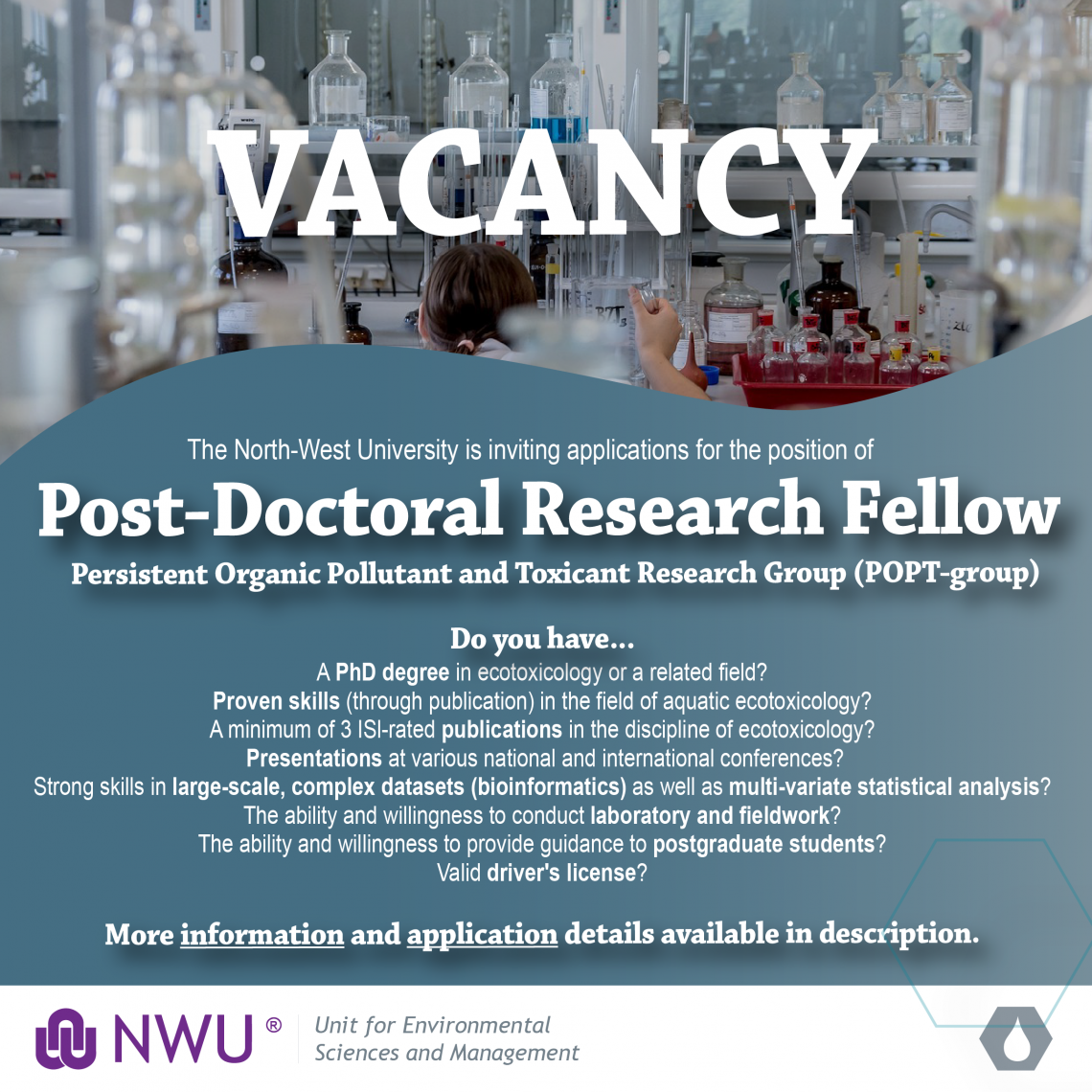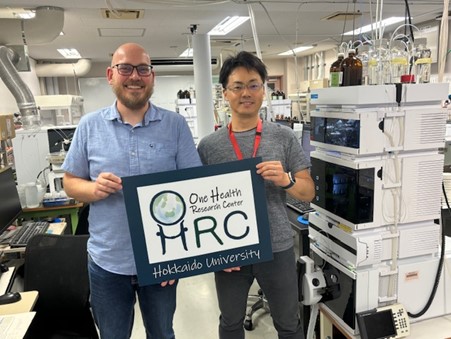
Sub-programme leader: Prof Jonathan Taylor (Jonathan.Taylor@nwu.ac.za)
Latest news:
Vacancy: Post-Doctoral Research Fellow
 |
Vacancy: Post-Doctoral Research Fellow - Persistent Organic Pollutant and Toxicant Research Group (POPT-group)Sub-programme: Aquatic Ecosystem Health (AEH) The North-West University’s Unit for Environmental Sciences and Management hosts a world-renowned group of researchers and invites suitable applications for the Post-Doctoral Research Fellow in the Persistent Organic Pollutant and Toxicant Research Group (POPT-group) as an ecotoxicologist within the Aquatic Ecosystem Health (AEH) sub-programme. This is a full-time Post-Doctoral Fellowship (PDF) funded through the NWU Post-Doctoral programme. The Unit currently has a number of positions available, and the PDF should commence as soon as possible. The fellowship is available for three years. The PDF position is reviewed on an annual basis and continuation thereof is subject to performance evaluation. The PDF will be based in Potchefstroom and hosted by Prof Henk Bouwman. More information and application details here. |
Dr Hannes Erasmus - Assistant Professor in the One Health Research Center
 |
Dr Hannes Erasmus - Assistant Professor in the One Health Research CenterSub-programme: Aquatic Ecosystem Health (AEH) Dr Hannes Erasmus was recently appointed as an Assistant Professor in the One Health Research Center, at Hokkaido University, Japan (https://ohrc.vetmed.hokudai.ac.jp/) from mid-July to mid-November 2024. More Information on his achievement, here. |
About Aquatic Ecosystem Health
Strategic Aim and Mission
Considering that South Africa is a water scarce country and we are situated in a particularly dry part of the country, our mission is improving water quality on various levels. The strategic aim is continued research to learn the status of water quality and how it influences human and wild life in South Africa. This means applied research across a variety of disciplines geared towards understanding and solving problems of water quality that would inform on the second very important aim: to develop and deliver training programs that address the issues highlighted by research.
Specific Focus
The focus comprises of three legs:
1. Nature and effect of pollution in both fresh- and marine waters
2. Developing solutions to water quality problems
3. The above two foci are addressed through a trans-disciplinary approach
Research Objectives
The nature of the pollution is determined quantitatively as well as qualitatively. The effect pollution has on the natural environment is studied from the molecular level of organisation to ecosystem level. Population composition and dynamics (of diatoms to fish and birds) are studied as indicators of anthropogenic involvement.
Research also focuses on developing solutions for pollution problems from more effective management of natural water resources to predicting risk and flaring of pollution issues that have cyclic characteristics. These solutions are included in training programs for honours courses for full-time as well as part-time students.
Research Groups
Last updated: 31 August 2022

